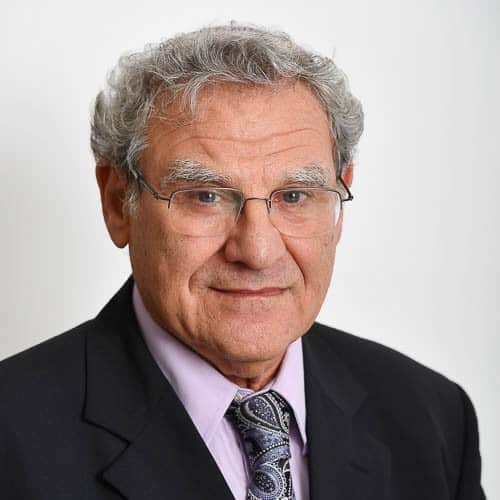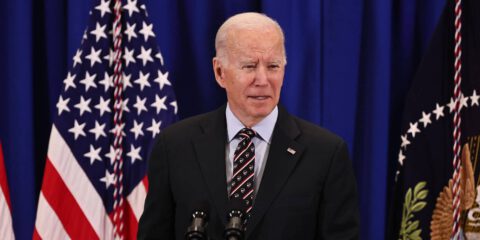אחרי הנסיגה הנמהרת מאפגניסטן, ממשל ביידן זקוק לשיקום האמון כבעלי ברית מהימנים. בנט צריך להדגיש את האינטרס האמריקני באזור, ולהציג את היכולת של ישראל לסייע בהגשמת אותן מטרות.
ביקורו הראשון של נפתלי בנט כראש ממשלה בוושינגטון, בירת בעלת הברית הגדולה של ישראל, הוא ללא ספק אירוע חשוב, במיוחד משום שמדובר בפגישה בין שני מנהיגים אשר נכנסו לא מזמן לתפקידם. ניתן לשער כי האירוע יעורר סקרנות רבה ויזכה לכיסוי תקשורתי רחב גם בארצות הברית.
לבנט יש כישורים תקשורתיים, היכרות טובה עם הקפיטול ואנגלית מצוינת, אלא שאין להגזים בתפקיד היחסים הבין-אישיים או הכימיה האישית. בסופו של דבר האינטרסים המדינתיים המוגדרים על ידי המנהיגים הם הקובעים במידה רבה את מה שיקרה בין וושינגטון לירושלים.
כפי שגם דווח, מיזם הגרעין יתפוס את מוקד השיחה משום שמדובר בנושא קיומי עבור ישראל. ארצות הברית מצידה עושה מאמצים גדולים להוריד את הנושא מסדר היום הבינלאומי על ידי החזרת אירן להסכם הגרעין מ-2015. זוהי נקודת מחלוקת בין ממשל ביידן לבין ישראל, הרואה בחזרה להסכם בעיה אסטרטגית-ביטחונית קשה ביותר. ייתכן שהעיכוב בחזרת אירן לשיחות על ההסכם יקל על ראש הממשלה, אלא שלא ברור האם יש לאמריקנים תכנית חלופית והם בשלב זה נראים אובדי עצות. זוהי הזדמנות לכרסם בהבטחה שניתנה על ידי שר החוץ וראש הממשלה החליפי, יאיר לפיד, “לא להפתיע” את האמריקנים ואף ייתכן שגם ממשל ביידן ירצה בכך – כדי לייצר איום צבאי אמין על אירן ולהחזירה לשיחות בווינה. יש מקום לבקש מהנשיא ביידן שיצהיר בעקבות הפגישה כי לישראל יש את הזכות להגן על עצמה בכוחותיה, הצהרה שהוא נתן בעבר מספר פעמים.
משימתו המרכזית של בנט תהיה לשנות את ההתייחסות האמריקנית לאירן, אשר ממעיטה בביקורת על התנהגותה האזורית המכוונת להשתלטות על אזור המפרץ הפרסי ואזור הים הכספי העשירים במשאבי אנרגיה. עליו לשכנע את הממשל האמריקני, הממוקד באתגר הסיני, שאירן היא חלק חשוב במהלכים הסינים נגד ארצות הברית. המשק הסיני המתעורר זקוק לנפט מזרח-תיכוני (בניגוד לארצות הברית) ולכן המשמעות המעשית של חזרה להסכם הגרעין היא שחרור כמויות נפט גדולות עבור התעשייה הסינית. תוכניות ההשקעה הגדולות של סין באירן מכוונות להבטיח את זרימת הנפט לארצם. ייתכן גם והאמריקנים מבינים שלאחר היציאה המבישה מאפגניסטן, לאירן תהיה חופש פעולה גדול יותר והיא לא תהסס להדק עוד יותר את היחסים עם סין שהיא בעלת אינטרסים באפגניסטן ובמפרץ הפרסי.
ביידן, מצידו, ידרוש בוודאי מישראל רגישות גדולה יותר בהענקת חוזים מסחריים בפרויקטים בתשתיות הישראליות לחברות סיניות. ראוי שבנט יענה לבקשה האמריקנית בחיוב וידגיש בכך שישראל רואה בסין רק כתובת ליחסים כלכליים ותגביר את תשומת לבה לעסקאות שעלולות להיות להן השלכות אסטרטגיות.
למרות יחסי הכוחות הברורים הנוטים לטובת המעצמה הגדולה בעולם, הרי האירועים באפגניסטן אשר מדליקים נורות אדומות אצל רבות מבעלות בריתה של ארצות הברית יוצרים גם אילוץ על וושינגטון במגעיה עם ירושלים. האמריקנים זקוקים כעת לשקם את אמינותם כבעלי ברית מהימנים, ולכן היא אינה יכולה להראות כמי שלוחצת יותר מדי על ידידתה – ישראל. יתר על כן, בניגוד לבעלי ברית אחרים, ישראל אינה זקוקה לכוחות אמריקנים להגנתה. באופן כללי, כמובן אין לשכוח את כוח השדולה היהודית החזקה בארצות הברית.
לעומת זאת, לישראל תפקיד חשוב בבניית ברית לא-פורמאלית עם מדינות ערב, התומכות בסטטוס-קוו, ומעוניינות לעמוד מול התוקפנות האירנית והשאפתנות הטורקית המאיימות עליהן. נסיגת האמריקנים מרוב מעוזיהם במזרח התיכון עשויה לדחוף מדינות אלו להתקרב לישראל. ממשל ביידן צריך לעודד מגמה זו במסגרת הסכמי אברהם כדי לחזק את היציבות האזורית, זאת למרות שהסכמים אלה מיוחסים לממשל טראמפ. החלופה היא התקרבות לאירן.
לכן, רצוי שראש הממשלה בנט יפנה את השיחה לתמונה הכללית של המזרח התיכון המותירה את ישראל כבעלת ברית יחידה, בעלת יכולת פעולה עצמאית. הרי ארצות הברית כבר לא יכולה לסמוך על טורקיה או על מדינות ערב שתאפשרנה בעת חירום שימוש בשטחן עבור כוחות מעורבות אמריקנים. הסתכלות רחבה על האזור מעמידה את ישראל באור חיובי במפת האינטרסים האמריקנים.
בנוגע לסוגיה הפלסטינית הרי שלנשיא ביידן אין עניין להדגיש זאת במיוחד לאור ההסכמה הרחבה כי אין סיכוי למאמצים לקדם הסכם לסיום הסכסוך עם ישראל בזמן הקרוב. אם בנט ישאל על נוסחת שתי המדינות, ראוי להזכיר שחמאס, הכוח הפוליטי העולה בישות הפלסטינית, בירך את הטאליבאן על כיבוש קאבול. האם ארצות הברית ובעלי בריתה הערבים מעוניינים בהקמת מדינת חמאס לצידה של ישראל? ייתכן שגם סוגית הבנייה בהתנחלויות תעלה ורצוי שבנט יגלה גמישות כדי להבטיח דברים חשובים יותר – במיוחד בכל הקשור לירושלים.
אין להיענות לבקשה האמריקנית להקים קונסוליה לפלסטינים בעיר הבירה של ישראל. אין שום תקדים דיפלומטי למציאות כשבירת מדינה מארחת נציגות דיפלומטית למדינה אחרת. גם החקיקה האמריקנית וכמובן זו הישראלית תומכות בעמדה הישראלית. בנט גם יכול לנמק את ההתנגדות גם בצורך של ממשלתו הצרה לשרוד פוליטית בבית.
לבסוף, מעט יודעים שכל מפגש ראשון בין נשיא אמריקני לבין ראש ממשלה ישראלי כולל ניסיון ישראלי לשמר את ההבנה האמריקנית רבת השנים בנושא העמימות הגרעינית הישראלית והבטחה לא לנקוט צעדים בתחום בקרת הנשק אשר עלולים לערער את העמדה הזאת. למרות שבמפלגה הדמוקרטית יש רבים המצדדים בבקרת נשק גרעיני מאשר אלו במפלגה הרפובליקנית, הרי לא נראה שהנשיא ביידן ואנשי צוותו מודאגים מהעמדה הישראלית המסורתית בנושא הגרעיני ואין להם עניין ליצור נקודת מתח מיותרת עם ישראל.
פורסם ב-N12
26.8.2021
סדרת הפרסומים “ניירות עמדה” מטעם המכון מתפרסמת הודות לנדיבותה של משפחת גרג רוסהנדלר









 - בניית אתרים
- בניית אתרים